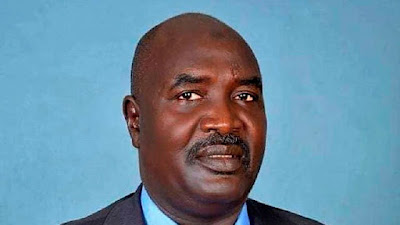Source: Xinhua - www.xinhuanet.com
By Marwa Yahya
Editor: huaxia
Published Saturday 15 July 2023; 21:46:15 - here is a full copy:
New Analysis: Cairo summit drives Sudan's neighbors toward unified stance on ending conflict
CAIRO, July 15 (Xinhua) -- A high-profile summit that brought together Sudan's seven neighboring countries reached a comprehensive effort that has the potential to succeed in resolve the deepening conflict in the African country, according to political analysts.
The summit, held in Cairo on Thursday, was attended by leaders of Egypt, Ethiopia, South Sudan, Chad, Eritrea, the Central African Republic and Libya, as well as high-ranked officials from the African Union and the Arab League.
"It is a fresh bid to revive international moves via the mediation of neighboring countries to halt fighting between rival Sudan's military factions that triggered a humanitarian crisis," said Salah Halima, former chairman of the Arab League office in Sudan.
The African leaders agreed on forming a ministerial mechanism comprised of the foreign ministers of Sudan's neighboring states to formulate an executive action plan to end the fight. Its first meeting will take place in Chad.
In the communique issued on Thursday, the leaders expressed full respect for Sudan's unity and sovereignty and called for non-intervention in the domestic conflict. They also agreed to facilitate aid delivery through neighboring countries in coordination with international agencies and organizations concerned.
Sudan's military-led Transitional Sovereign Council lauded the communique as constructive toward the restoration of security and stability in the country and expressed willingness to cease military operations when the paramilitary Rapid Support Forces (RSF) stops attacks on civilians and public facilities and engages in inclusive political dialogue.
The RSF also reiterated support for regional and global efforts to end the war in Sudan and called for combined efforts of relevant parties to reach a comprehensive solution for Sudan as soon as possible.
Sudan has been rocked by violent conflicts since April 15 between the Sudanese Armed Forces and the RSF. The ongoing war in Sudan has left more than 3,000 killed and at least 6,000 injured, according to the Sudanese Health Ministry.
More than 2.8 million people have been displaced, mostly internally, since the conflict broke out in Sudan, according to figures released by the United Nations.
Halima explained that both sides affirmed their readiness to collaborate with regional players to settle the war because the summit's communique in Cairo put a comprehensive plan for a cease-fire away from any foreign intervention.
The timing of the meeting in Cairo was significant given the armed conflict in Sudan's capital Khartoum has extended to the troubled Darfur region and Blue Nile state, raising more concerns about worse deterioration of political, economic, and humanitarian conditions and destruction of many facilities and substructure services, he told Xinhua.
Halima, also vice president of the Egyptian Council for African Affairs and former assistant to the Egyptian Foreign Minister, noted that the ongoing violence in Sudan will not only threaten the unity of Sudan but challenge the security of Sudan's neighboring countries, the African Horn region, and the countries along the Red Sea.
Amany Al-Taweel, chairman of the African program at Ahram Center for Strategic and Political Studies, described the outcome of the Cairo summit as "satisfactory and constructive," because bringing together all Sudan's neighbors, which bear the burdens of the conflict, will unify their positions and pressure the conflicting parties in Sudan to end the war.
"The summit in Cairo was a platform for integrating all regional initiatives into collective efforts without regional competition, which will lead to achieving comprehensive success of all neighbors' endeavors," she said.
View original: http://www.chinaview.cn/africa/20230715/65f81abe5230481d920c94931e417dbc/c.html
_________________________
Related reports
Sudan Watch - Sunday 16 July 2023
Communique of Sudan’s Neighbouring States Summit held in Cairo Egypt 13 July 2023
https://sudanwatch.blogspot.com/2023/07/communique-of-sudans-neighbouring.html
Sudan Watch - Saturday 15 July 2023
Arab countries welcome the final communique of Sudan’s Neighbouring States Summit in Egypt
https://sudanwatch.blogspot.com/2023/07/arab-countries-welcome-final-communique.html
Sudan Watch - Sunday 09 July 2023
Communiqué of the 1st Meeting of the IGAD Quartet Group for the Resolution of the Situation in Sudan
https://sudanwatch.blogspot.com/2023/07/communique-of-1st-meeting-of-igad.html
Cartoon by Omar Defallah (Radio Dabanga)
[Ends]








